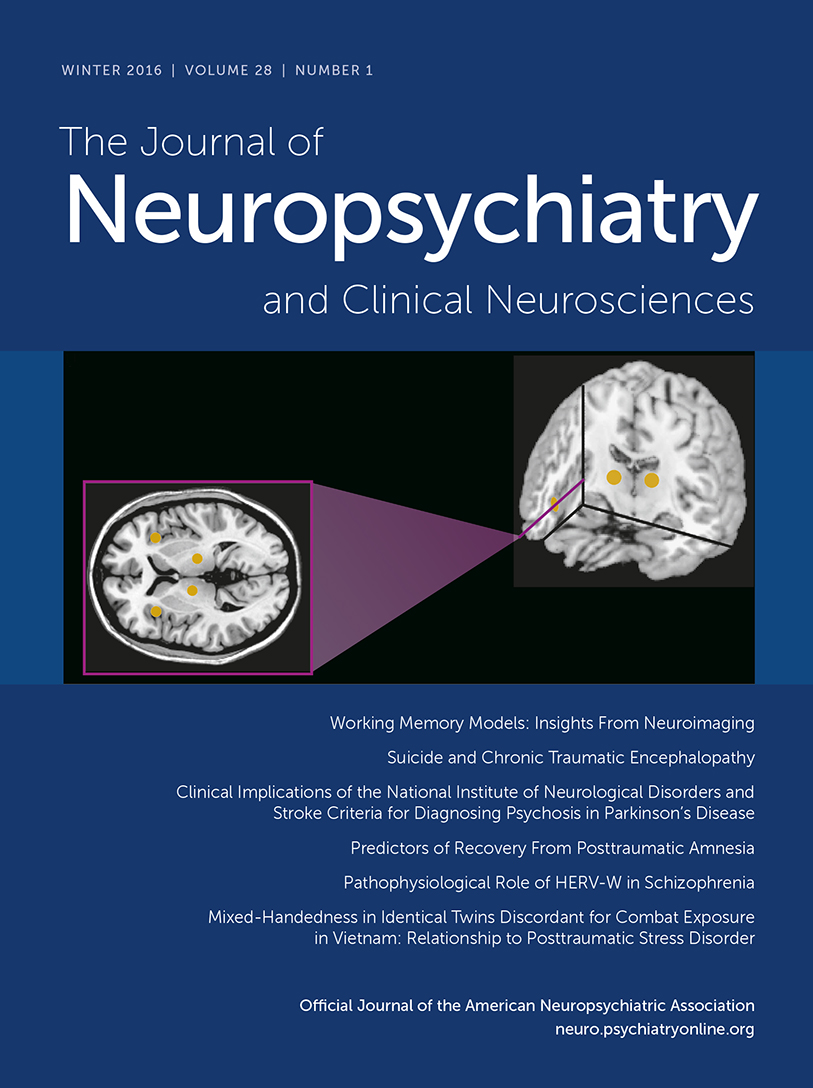Mixed-Handedness in Identical Twins Discordant for Combat Exposure in Vietnam: Relationship to Posttraumatic Stress Disorder
Abstract
This study evaluated the degree of mixed-handedness in predominantly right-handed Vietnam combat veteran twins and their identical, combat-unexposed cotwins. The “high-risk” cotwins of combat veterans with combat-related posttraumatic stress disorder (PTSD) had more mixed-handedness (i.e., less right-handedness) than the “low-risk” cotwins of combat veterans without PTSD. Self-reported combat exposure in combat-exposed twins was a mediator of the association between handedness in their unexposed cotwins and PTSD in the twins themselves. We conclude that mixed-handedness is a familial risk factor for combat-related PTSD. This risk may be mediated in part by a proclivity for mixed-handed soldiers and Marines to experience heavier combat.



